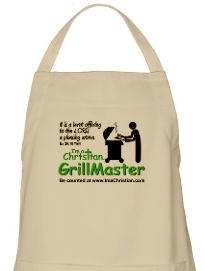Last month I blogged about Christian Legal Society v. Martinez, a pending Supreme Court case that pitted a public university’s nondiscrimination policy against a Christian student group’s desire to restrict membership based on belief and behavior. Specifically, Hastings College of Law (a University of California institution) denied official recognition to the CLS because they required their members to be professing Christians and to disavow “unrepentant participation in or advocacy of a sexually immoral lifestyle”, i.e. homosexuality.
Following their tradition of shooting off controversial opinions just before they leave town for the summer, the Court yesterday decided the case in favor of Hastings, in a 5-4 decision written by Justice Ruth Bader Ginsburg.
As I wrote before, it depresses me that a Christian group chose to make their anti-gay stance so fundamental to their identity. I’m glad that Hastings is trying to be a safe place for gay students, especially gay Christians. However, I think the precedent established here will do more harm than good. I sympathize with this analysis from the Christianity Today article:
…[I]t’s unlikely that many state colleges and universities will adapt such an “all comers” policy in the future, said Carl Esbeck, a constitutional law professor at the University of Missouri who filed a friend of the court brief in the case for the National Association of Evangelicals, Evangelicals for Social Action, and leaders of the Evangelical Theological Society.
“It’s unlikely, because an all-comers policy by and large defeats the purpose for which state universities allow student organizations to be created and recognized by the educational institution,” he told CT. “Namely, that like-minded people can band together in an association or organization and thereby have not only common reinforcement among themselves but also have a greater voice because they’re speaking as a united group.”
Timothy Belz, who wrote the friend of the court brief with Esbeck, agreed that few schools will follow Hastings’s lead. “Even Justice Ginsburg said that just because it was constitutional didn’t mean it was advisable,” he said. “A lot of universities are not going to find that this is an advisable policy, where you can force the Young Democrats to elect a Republican, or a lesbian group to elect a straight male as their president. It’s a silly rule.”
The spectre of students organizing to take over the leadership of groups they don’t like has already happened at Central Michigan University, said David French, senior counsel at the Alliance Defense Fund and director of the ADF’s Center for Academic Freedom. It’s a strong possiblity at any school with a policy like the one at Hastings, he said in a blog post.
“By emphasizing the value of dissent within groups, the Court ignores the fundamental reality of an all-comers policy: Distinct student organizations exist at the whim of the majority,” French wrote. “If ‘all comers’ can join, then the majority can override the speech of any student group. Thus the true marketplace of ideas exists by the permission (or, more likely, apathy) of the majority. The potential for minority or disfavored groups at schools with an all-comers policy to self-censor to avoid controversy — and potential hostile takeovers — is high.”
But even if Hastings remains the only institution with such a policy, the Supreme Court decision is a blow, Esbeck said.
“The ruling today by the majority of the Supreme Court means that associational freedoms for all groups are diminished today. That includes groups that might celebrate the particular result here,” he said. “The First Amendment is of less value to all of us.”
…
Indeed, imagine your favorite unintended-consequences horror show here: A men’s rights activist takes over the leadership of a student feminist group. A Holocaust denier wants to join the board of Hillel. Applied in this mechanical way, a school policy aimed at protecting diversity actually produces homogenization because there are no safe places for affinity groups to flourish and resist assimilation by the majority.
Elsewhere, at the liberal site Religion Dispatches, Candace Chellew-Hodge counters:
…I don’t really know that, given the tenor of CLS and what it stands for, how many budding gay or lesbian lawyers would want to join them—but they ought to be afforded that right—especially if CLS is looking for recognition and funding from the college. They have to abide by the rules—they don’t get any special right to discriminate.
For all the years that the religious right has been howling about how gays and lesbians want “special rights,” it’s always nice to see the double edged sword cutting the other way from time to time.
I don’t think Candace is seeing the big picture here. Still, she’s right to point out the irony in conservatives’ selective use of the principles of equality, tolerance, diversity, and free association–all of which they want to deny to the GLBT community.
Ultimately, student groups across the political spectrum may realize that official recognition by the university comes with too high a price tag. A little more church-state separation, so to speak, might do them some good.
